Remembering Joseph S. Nye Jr.
CCG President Henry Huiyao Wang reflects on Nye’s vision, humility, and commitment to dialogue.
Joseph S. Nye Jr., an influential figure in international relations who shaped decades of American foreign policy and introduced the world to the enduring concept of “soft power,” died on Tuesday in Cambridge, Massachusetts, at the age of 88. A former dean of Harvard’s Kennedy School and senior official in the U.S. government, Nye’s passing marks a profound loss for scholars, diplomats, and policymakers across the globe.
In the wake of his death, Henry Huiyao Wang, founder and president of the Center for China and Globalization (CCG), reflected on his 15-year-long relationship with Professor Nye, whose ideas and writings had deeply influenced U.S.–China dialogue over the years.
As a final tribute, CCG will soon publish the Chinese edition of A Life in the American Century, a memoir Nye had previously authorised the institution for publication in mainland China, bringing his legacy to a new generation of readers.
The Chinese version of this article is available on CCG’s official WeChat blog.
我所认识的“软实力”之父约瑟夫·奈
Joseph S. Nye Jr.: A Personal Remembrance of the Father of “Soft Power”
I was deeply saddened to learn of the passing of Professor Joseph S. Nye Jr., the originator of the concept of “soft power” and former dean of Harvard’s Kennedy School of Government, on May 6 at the age of 88. His wife had preceded him in death not long before. I had the privilege of knowing Professor Nye for many years and engaging in numerous conversations and exchanges with him. He once remarked, “One has to imagine not just power over other countries, but power with other countries. These issues, the transnational issues, cannot be solved by exerting power over other countries. You have to have power with other countries.” His death is a profound loss to the fields of international strategy and international relations.
I first met Professor Nye in 2010, when I was a senior fellow at Harvard’s Kennedy School of Government, where he had served as a professor and dean. During his tenure as dean, he actively promoted many China–U.S. exchange programs, and even after stepping down, he remained deeply engaged in these efforts. He delivered lectures to us with undiminished enthusiasm, and though already in his seventies, he was always full of energy and vitality.
We connected immediately and shared many engaging conversations, maintaining a close and meaningful dialogue over the years. After the outbreak of the COVID-19 pandemic in 2020, the Center for China and Globalization (CCG) launched the CCG Global Dialogues series to overcome barriers imposed by the pandemic and sustain international exchange. In April 2021, I invited Professor Nye to participate in a discussion titled “Power Shifts in the Twenty-First Century.” He readily accepted and spoke with me for over an hour.
That same year, he contributed a forward-looking essay, “China and the United States: Looking Forward 40 Years,” to the book Consensus or Conflict? China and Globalization in the 21st Century, which I edited.
In our conversations, Professor Nye described what he called a pattern of “ups and downs roughly every twenty years” in U.S.–China relations. Looking back historically, he noted that the first 20 years after 1945 were “pretty tough,” with U.S. and Chinese soldiers having fought each other on the Korean Peninsula in the 1950s. This was followed by a period of easing tensions, marked by President Nixon’s visit to Beijing, which ushered in 20 years of improving relations. During the Clinton administration, there was a concerted effort to integrate a rising China into the international order through initiatives such as accession to the World Trade Organisation. That phase lasted nearly two decades. However, with the emergence of Donald Trump around 2015–2016, a new downturn began. We are now midway through this latest 20-year cycle, with 2025 marking the midpoint. Nye suggested that by 2035, relations could begin to improve once again. He elaborated on this perspective in his essay “Power Shifts in the Twenty-First Century.” Whether this 20-year cycle will hold remains to be seen.
Later, I invited Professor Nye to recommend several of his own writings for inclusion in the China and Globalization series, which I co-edited with Mabel Lu Miao. He graciously agreed, and these essays were ultimately compiled into a dedicated volume reflecting his thinking on soft power and U.S.–China relations. In April 2023, the book—Soft Power and Great-Power Competition: Shifting Sands in the Balance of Power between the United States and China—was published in both Chinese and English. Professor Nye joined the launch event virtually, which was co-hosted by CCG, Springer, and CITIC Press Group. He delivered remarks and held a dialogue with me.
In his remarks at the April 2023 book launch, Nye emphasised that while the most important issue in U.S.–China relations is recognising that competition does exist, it must be bounded. He stressed the need to “have constant communication with each other at the highest levels,” to “understand what each other’s red lines are,” and to avoid slipping into crisis. This, he said, requires the establishment of “guardrails” to ensure that “we don’t go off the road.” He cautioned against allowing decoupling to go too far, especially in areas of deep interdependence such as pandemic response and ecological protection, where “we cannot escape the effects that each other are having.” Nye stressed that both China and the United States are too large to pose an existential threat to one another under normal circumstances. “The only way they could destroy or threaten each other’s survival,” he warned, “is through reckless war.” In his view, undermining each other is dangerous for both sides.
In October 2023, I invited Professor Nye to speak at CCG’s 8th China Global Think Tank Innovation Conference. In his address, Nye cautioned against framing current U.S.–China relations as a new Cold War, arguing that such analogies are misleading. “We confuse ourselves when we use that terminology,” he said, noting that, unlike the U.S.–Soviet relationship, which was characterised by military rivalry with almost no economic or social interdependence, the U.S. and China today are deeply connected. There is “enormous economic interdependence—half a trillion dollars’ worth of trade,” he remarked, and before the COVID-19 pandemic, “something like 300,000 Chinese students [were] studying in American universities.”
Nye called for a strategy “much more subtle than a Cold War strategy of containment,” one that balances competition and cooperation simultaneously. Failure to do so, he warned, would have consequences not only for the U.S. and China but also for the global economy and efforts to address existential challenges like climate change.
In April 2024, Nye led a delegation from the Aspen Institute to China and participated in the “China–U.S. Track II Dialogue 2024” held in Beijing. During the event, I had the honour of presenting him with books we had compiled featuring his writings, in both English and Chinese. He accepted them with great pleasure. We held the books together and posed for a commemorative photograph. Upon returning to the United States, he published an article titled “U.S.–China Cooperation Remains Possible,” in which he shared reflections from the dialogue and identified seven areas of potential cooperation.
In August 2024, Nye invited Mabel Lu Miao and me to attend the annual Aspen Security Forum, where we were the only Chinese participants. At the forum, Nye offered measured and thoughtful commentary, making clear his opposition to a decoupling between China and the United States.
He also hosted a book talk for his memoir, A Life in the American Century, and kindly invited me to attend. In his remarks, he highlighted the broad space for cooperation between China and the United States in areas such as climate change, pandemic prevention, and infrastructure development. He emphasised that through joint efforts, the two countries could work together to address global challenges—an idea that left a deep impression on me. Out of trust, he authorised us to translate the book into Chinese and asked for our help in recommending a suitable publisher in China. He was truly pleased to learn that a Chinese edition would be published. The book is now set to be released by China Science and Technology Press. Sadly, he did not live to see the Chinese version come to fruition.
During the Aspen Security Forum, we also had the pleasure of meeting Professor Nye’s wife, Molly, and took a photo together. Sadly, she passed away in December that year. Following her passing, Professor Nye’s health began to decline, and he gradually withdrew from public events.
On March 11 of this year, Zichen Wang, CCG Research Fellow and Director for International Communications pursuing Master in Public Policy (MPP) at the School of Public and International Affairs (SPIA) at Princeton University, made a special visit to see him. Ever gracious and generous with younger generations, Nye welcomed him warmly, invited him to select a book as a gift, and inscribed a personal dedication.
In late April, we travelled to the United States and visited Harvard University, hoping to see him, but unfortunately, we were unable to meet. Despite his illness, Professor Nye continued to write, frequently publishing thoughtful commentary on international affairs. His passing came as a shock—it was sudden and deeply unexpected.
Fifteen years have passed in the blink of an eye. Professor Nye left a lasting impression on me with his intellect, broad perspective, foresight, and remarkable humility. Even in retirement, he remained deeply engaged with developments in the United States and around the world, frequently publishing incisive commentary on international affairs. He continued to travel extensively, attending major conferences and chairing key sessions, including at the Munich Security Conference, and often appeared in media interviews. He also held prominent roles in multinational organisations and NGOs such as the Aspen Strategy Group and the Trilateral Commission, consistently working to foster dialogue and mutual understanding across borders.
What stood out to me over the years of knowing Professor Nye was that he personally replied to every email I sent. In all our conversations, he was consistently modest and unassuming, and that moved me deeply.
Professor Nye’s life can be seen as a vivid reflection of the “American Century.” Born in 1937, he came of age after World War II, as the United States entered a period of global ascendancy—an era in which it accounted for more than half of the world’s economic output and abounded with opportunity. The son of immigrant ancestors, Nye was raised in rural New Jersey. His father was a partner at a bond firm; his mother worked as a secretary. He received his early education in local public schools and, through diligence and academic distinction, earned admission to Princeton University. He later pursued graduate studies at Oxford University as a Rhodes Scholar, and then at Harvard University, where he studied under renowned scholars such as Henry Kissinger.
Both Nye and Graham Allison, the founding dean of the Harvard Kennedy School, studied abroad in the UK and returned to the U.S. with a broad international outlook. Nye went on to teach at Harvard for decades, where he developed influential concepts including “soft power,” “smart power,” and “neoliberalism.” His insights into the nature of power in international relations shaped generations of policymakers, scholars, and students around the world. In 2011, Foreign Policy magazine included him on its list of Top 100 Global Thinkers.
When I first met Professor Nye at Harvard’s Kennedy School of Government, U.S.–China relations were still in a relatively positive phase. At the time, American foreign policy—shaped by the aftermath of 9/11—was primarily focused on counterterrorism and the Middle East. China had recently marked the tenth anniversary of its accession to the World Trade Organisation, and during the 2008 global financial crisis, it worked closely with the United States to stabilise the global economy and promote recovery.
With the perceptiveness of a leading scholar in international politics, Professor Nye had been observing China’s rise for over a decade. In a 1998 article, he argued that the term “rise of China” was a misnomer and that “re-emergence” would be more accurate. In the years that followed, he published numerous articles analysing China’s soft power. He wrote about the appeal of traditional Chinese culture, the international reach of Chinese film and television, the symbolic significance of the 2008 Summer Olympics, and the sharp increase in both international students studying in China and inbound foreign tourism. He also noted that China’s GDP had more than tripled since the pre-reform era. Combined with its foreign aid efforts and market openness, these factors, in his view, had substantially enhanced China’s global attractiveness.
In 2009, Professor Nye published an article exploring the dynamics of U.S.–China soft power relations. He argued that “there is little evidence that the increase in China soft power is aimed at counterweighing US soft power,” and that “the perception that the Chinese model of combining market economy with one-party rule (Beijing Consensus) will challenge the Western model (involving open markets, democracy, and rule of law), and values are dubious.” He further proposed that “the soft power interaction between the United States and China thus need not be seen as a competition, but rather as a more complex combination of competitive and cooperative forces.”
Nye frequently emphasised that “Soft power is not a zero-sum game in which one country’s gain is necessarily another country’s loss. If China and the United States, for example, both become more attractive in each other’s eyes, the prospects of damaging conflicts will be reduced. If the rise of China’s soft power reduces the chance of conflict, it can be part of a positive sum relationship.”
Many of his reflections on Chinese soft power, including this one, are collected in the book Soft Power and Great-Power Competition, which also features transcripts of my conversations with him. The volume provides readers with a deeper understanding of this vital and evolving topic.
In 2025, Donald Trump returned to the U.S. presidency. Shortly after taking office, he withdrew the United States from the Paris Agreement on climate change and the World Health Organisation, and swiftly launched a series of global tariff and trade wars. As a result, U.S.–China relations deteriorated to a new low. Professor Nye expressed deep concern over these developments, believing that such actions would do great damage to U.S. soft power and would not, as promised, “make America great again,” but greatly weaken it. In one of his final published commentaries, he warned: “The prospect of a wholly disengaged, self-focused United States has troubling implications for world order.”
In his autobiography A Life in the American Century, Professor Nye emphasised that although the 21st century will not be an American century in the same way the 20th was, the American Century is not over. Rather, the United States must adapt to a changing global environment by adjusting both its domestic and foreign policies. Nye repeatedly returned to two key principles that he believed should guide American leadership in this new era: the need to share power in a world of growing diffusion, and the recognition that power is increasingly exercised through “positive-sum outcomes” rather than zero-sum competition. Although globalisation has encountered headwinds, he maintained that global interdependence remains a structural reality—and that isolationism is not a viable strategy. The only path forward, he wrote, is through engagement and cooperation.
In Do Morals Matter?, he wrote that a nation must not only think in terms of “power over” others, but also recognise the importance of “power with” others. In an era shaped by the information revolution and globalisation, world politics is evolving in ways that no country, however powerful, can succeed by acting alone. When confronting global challenges such as the COVID-19 pandemic and climate change, power becomes a positive-sum game. Empowering others, Nye argued, can help a country accomplish its own goals.
He believed both American and Chinese leaders must internalise this logic of cooperation. Nye urged that mutual empowerment—not rivalry—should define great power relations. Nye argued that if both nations could increase their appeal in each other’s eyes, the likelihood of destructive conflict would be significantly diminished.
The Center for China and Globalization (CCG), which I founded in 2008, has been dedicated to advancing China’s soft power. I strongly agree with Professor Nye’s observation that “if the country is to realise its enormous soft-power potential, it will have to...unleash the full talents of its civil society.” In this regard, I call on China’s civil society—including individuals, enterprises, think tanks, and other organisations—to develop a strong sense of global engagement, understand and respect the differences in values and cultures between East and West, engage internationally with humility, confidence, and mutual respect, thereby leaving a positive and lasting impression on global audiences.
Going a step further, I believe it is essential to actively engage in Track Two Diplomacy—maintaining regular exchanges with Western scholars, experts, and political and business leaders; co-hosting international forums with global partners; and even initiating new models of multilateral international cooperation. Such efforts contribute to agenda setting in international discourse, enabling China to play a more active role in shaping global narratives, building consensus, and expanding the network of individuals and institutions that regard China with understanding and goodwill.
Over the years, CCG has been actively engaged in a range of international multilateral platforms, including participation in and organisation of sub-forums at the Munich Security Conference and the Paris Peace Forum. CCG launched the CCG Global Dialogues series, which has featured in-depth conversations with dozens of global thought leaders such as Angus Deaton, Thomas Friedman, Martin Wolf, Pascal Lamy, John L. Thornton, Kishore Mahbubani, Anthony Saich, Neil Bush, David Lampton, Stephen Roach, Jim O’Neill, and many others. In 2021, CCG also initiated the Global Young Leaders Dialogue (GYLD) to foster a mechanism for dialogue among emerging leaders from diverse countries and sectors—a program that received formal recognition from the Chinese President.
As a result of these sustained efforts, CCG has been ranked among the world’s top 100 think tanks in the Global Go To Think Tank Index Report by the University of Pennsylvania for several consecutive years. It is also the only Chinese think tank to have been granted special consultative status by the United Nations Economic and Social Council (ECOSOC).
At the end of his autobiography, Nye assesses the relationship between China and the United States, stating that “the greatest danger we face is not that China will surpass us, but that the diffusion of power will produce entropy, or the inability to get anything done.” What concerns him even more is the domestic issues in the U.S., but he remains optimistic: “For all our flaws, the US is an innovative society that, in the past, has been able to recreate and reinvent itself. Maybe Gen Z can do it again. I hope so...The best I can do is leave them my love and a faint ray of guarded optimism.”
At the conclusion of his article “China and the United States: Looking Forward 40 Years,” Professor Nye wrote, “There is no single future until it happens. The fate of the United States, of China, or of the world as a whole is not yet sealed.” I believe this observation eloquently captures the essence of our uncertain and evolving world. The future of China, the United States, and the international community will ultimately be shaped by the choices we make and the actions we take today.
Henry Huiyao Wang
Founder & President of the Center for China and Globalization (CCG)
May 8, 2025, Beijing



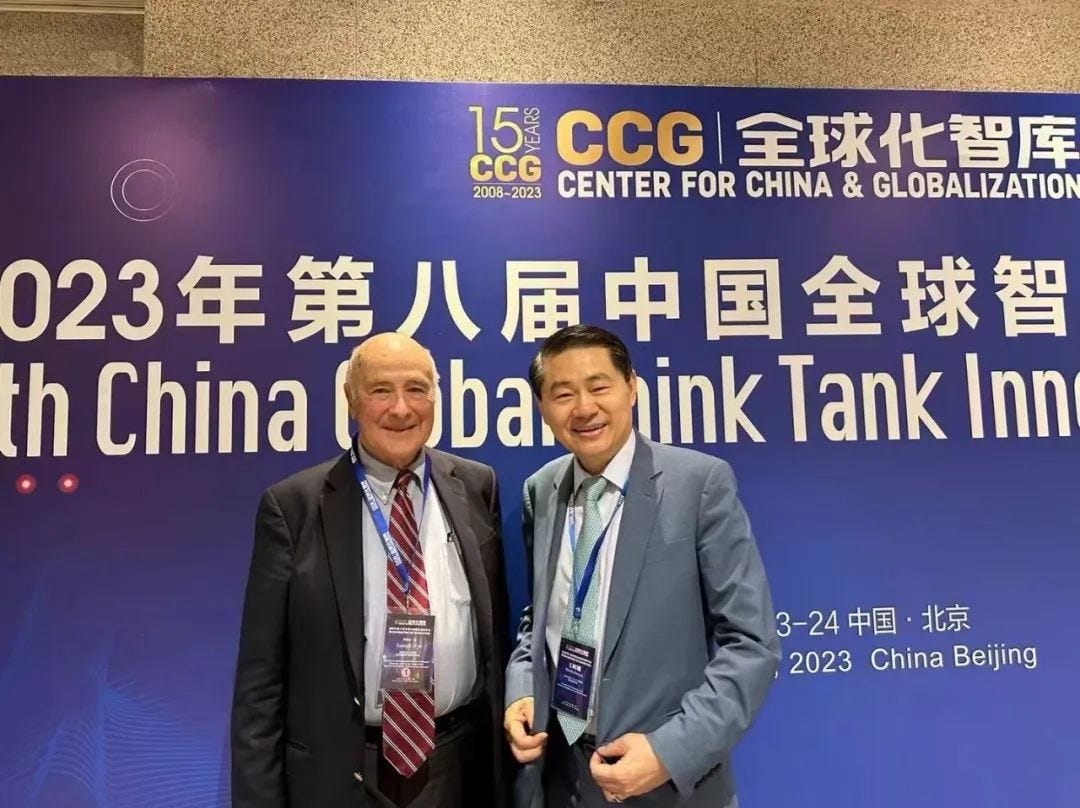


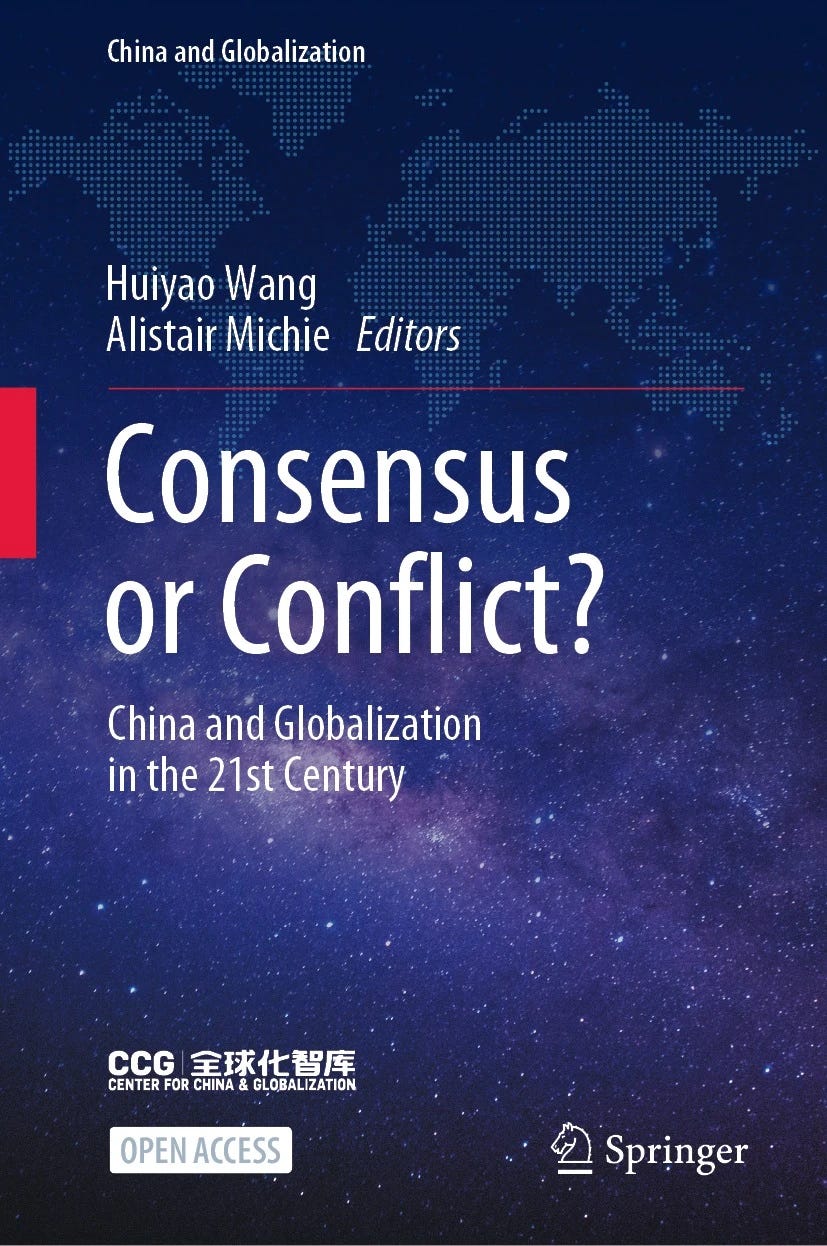


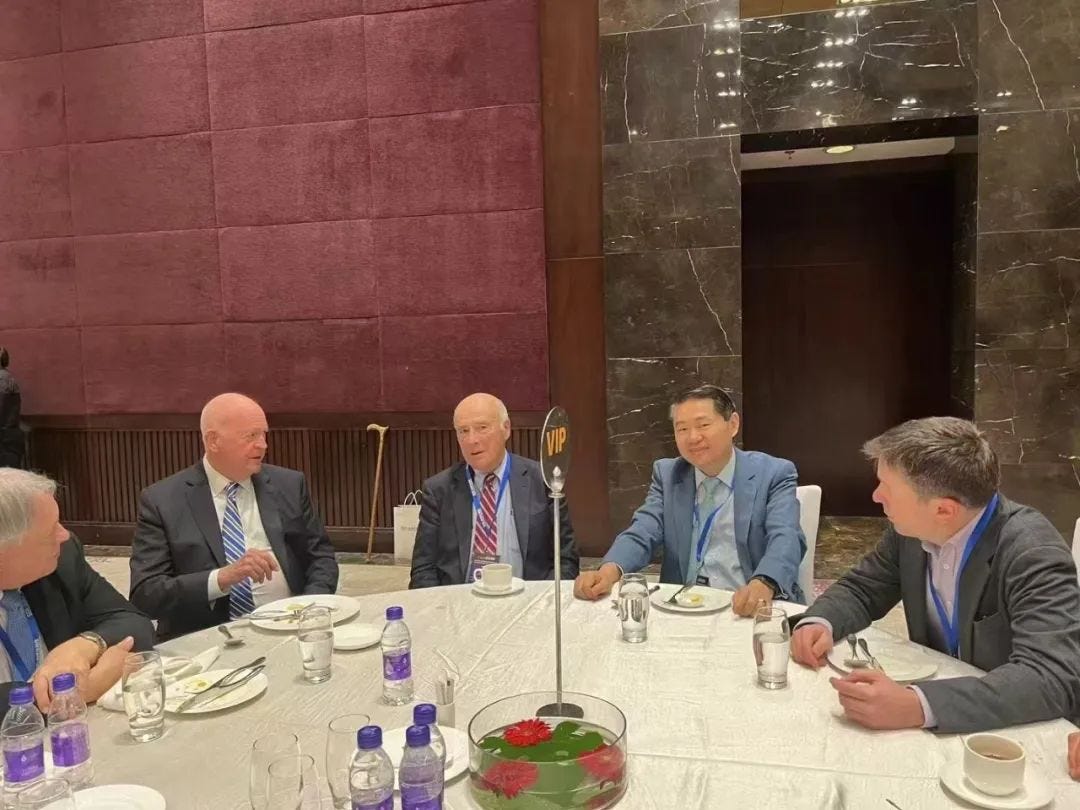
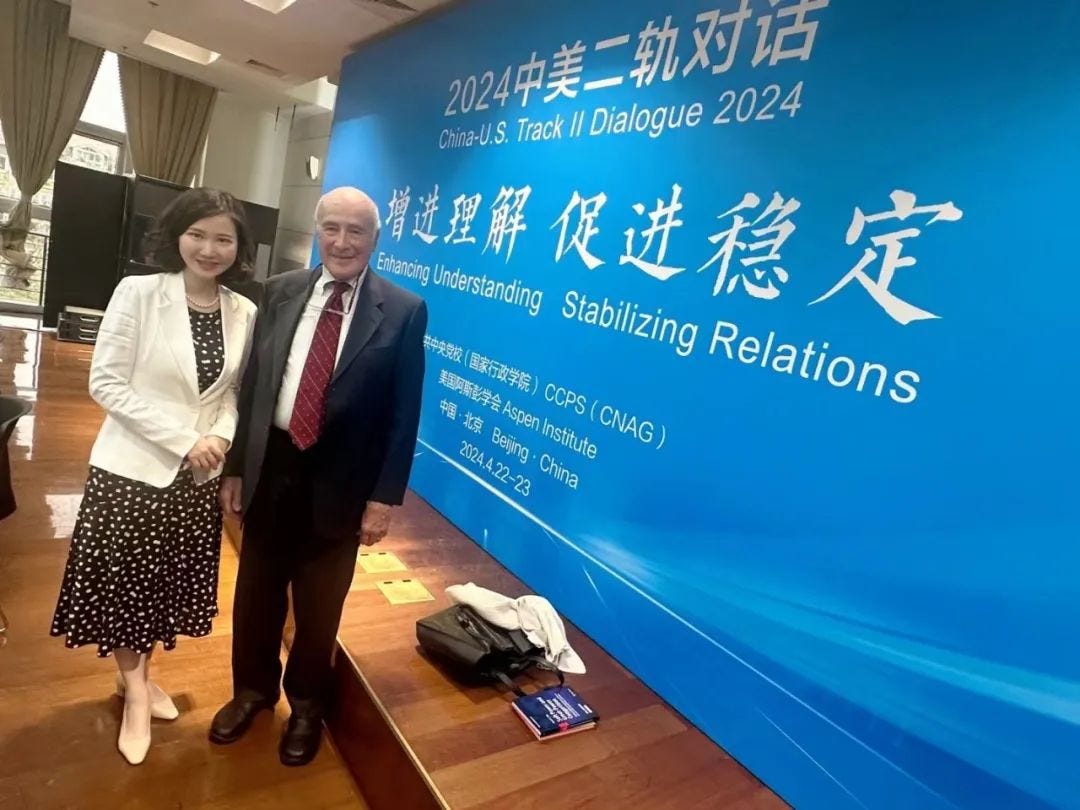
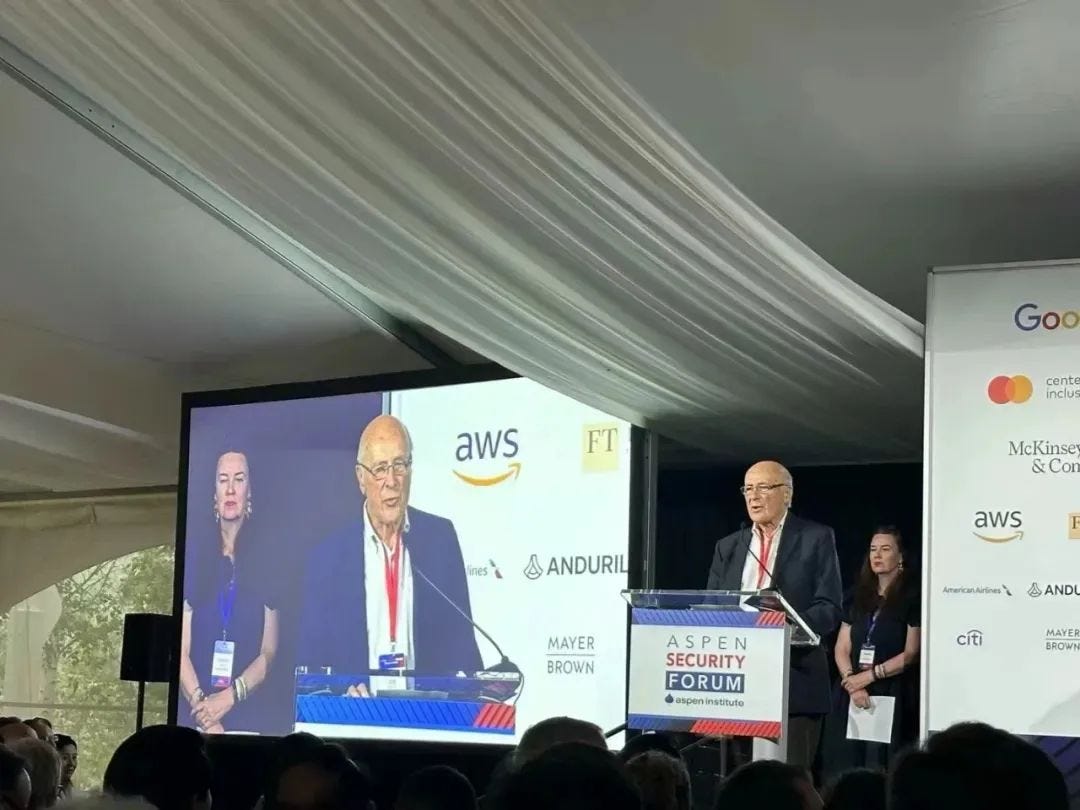
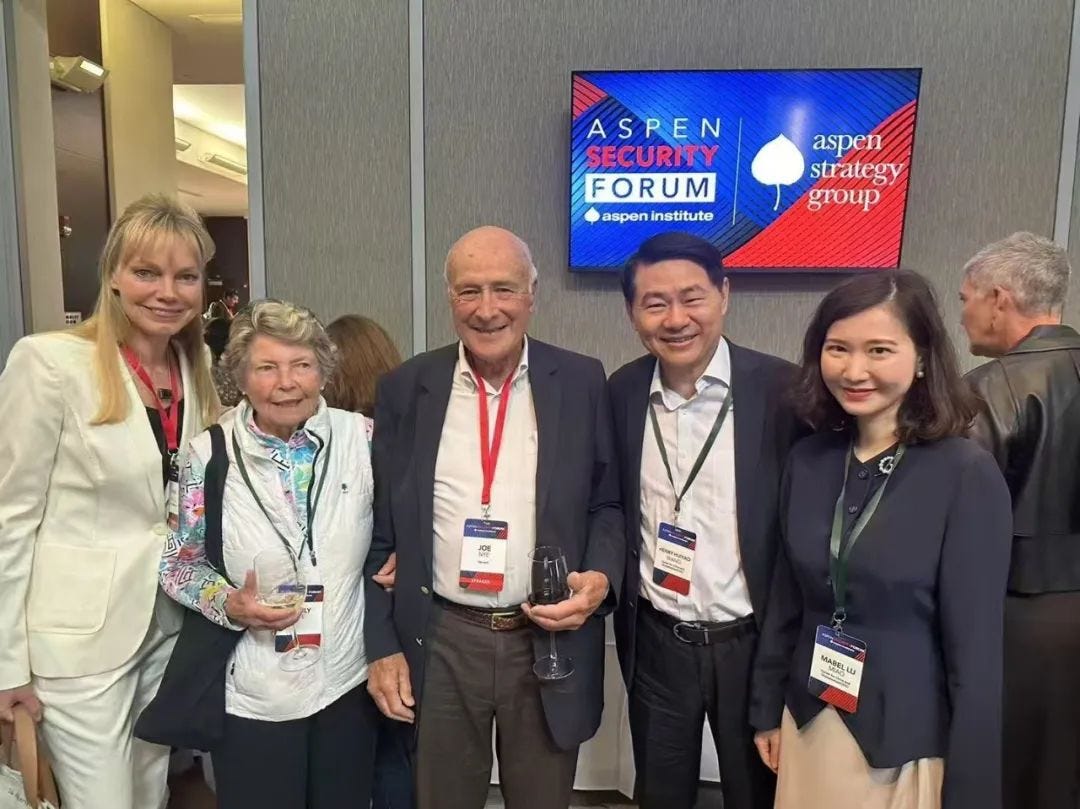
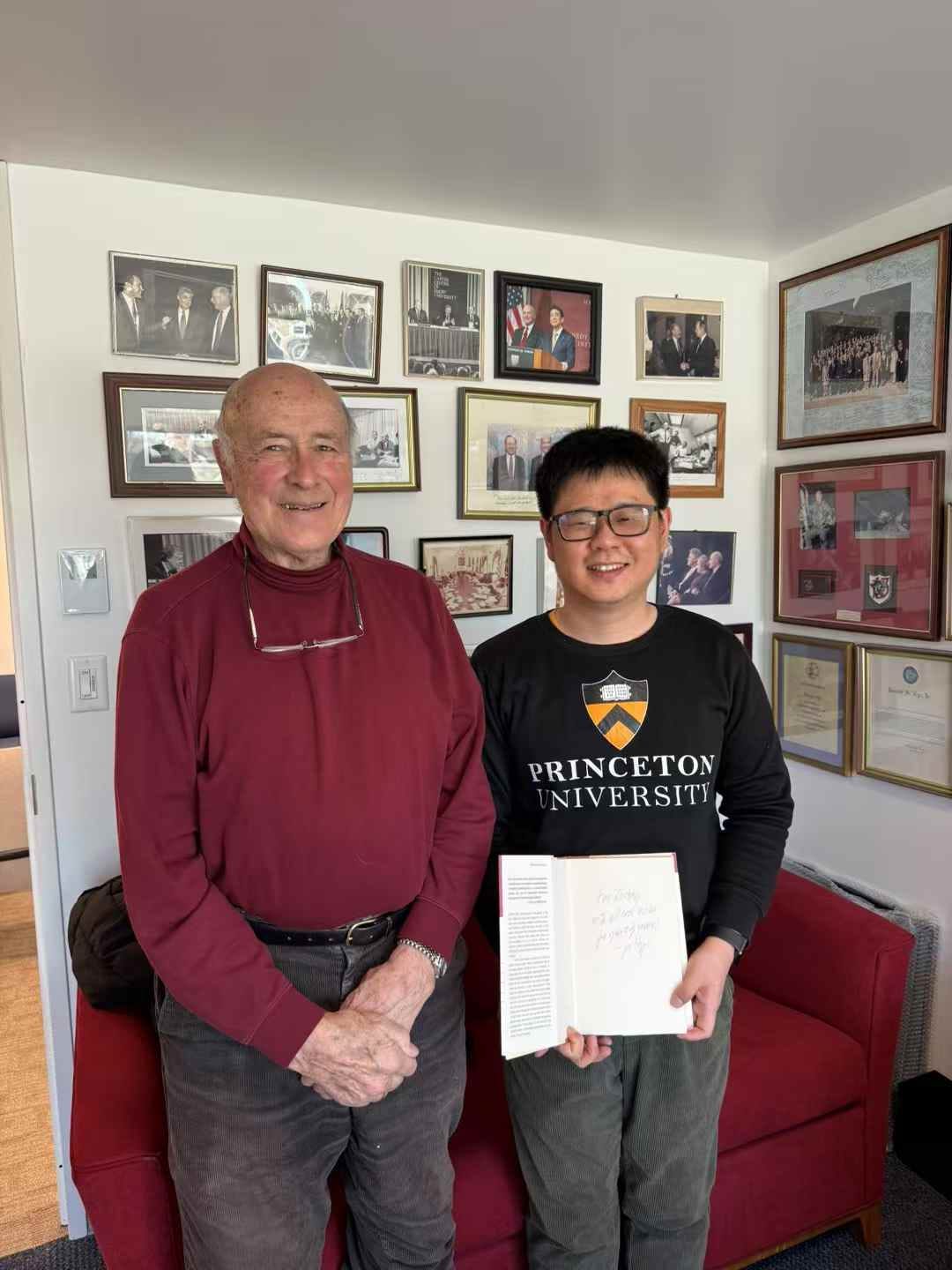
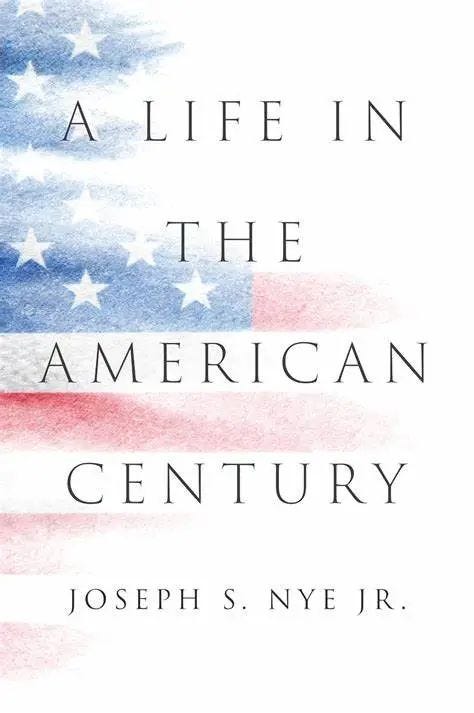
Professor Joseph Nye’s enduring legacy lies not only in his articulation of “soft power,” but also in his belief that true global influence is achieved through cooperation, mutual respect, and the empowerment of others. While the article rightly honors his visionary contributions to diplomacy and international strategy, we must also emphasize that peace and education are the twin pillars of a sustainable global future. Without prioritizing peace and making serious, coordinated investments in educating our populations—especially across nations in tension—we risk deepening divides and endangering our planet. Nye understood that the battles of the 21st century cannot be won through domination, but through dialogue, understanding, and the steady cultivation of wisdom among future generations.